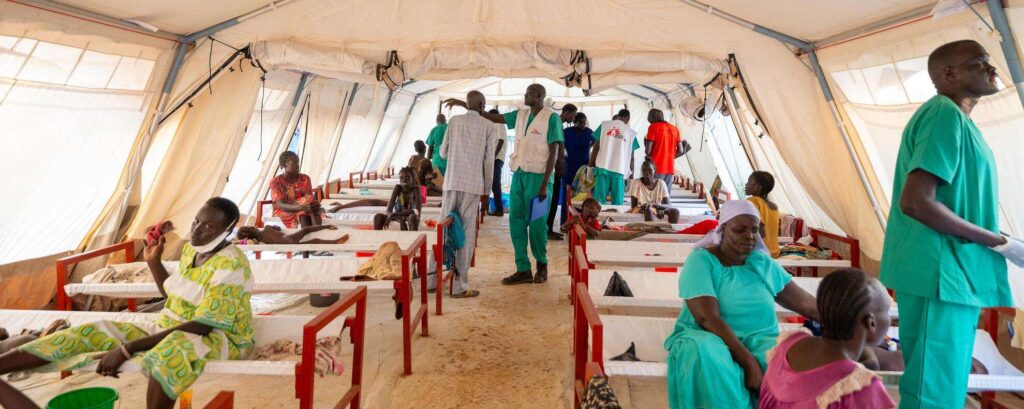The U.S. Embassy in Juba on Tuesday said it is helping address the cholera outbreak in South Sudan through the United States Agency for International Development (USAID).
According to a press statement extended to Radio Tamazuj, the U.S. Embassy is working with partners, including UNICEF, IOM, MSF, and WHO, to deliver emergency water, sanitation, and hygiene (WASH) services, provide life-saving medical care, support vaccination campaigns, provide treatment kits and diagnostic tests, and raise public awareness to curb the spread of cholera.
“On December 29, we delivered more than two million Aquatab water purification tablets as part of the humanitarian response to South Sudan’s ongoing cholera outbreak. These tablets, provided through USAID, will treat six million gallons of water, providing safe drinking water to communities most affected by the outbreak,” the statement reads in part. “In addition to these efforts, the United States has committed $200,000 to the World Health Organization (WHO) to support cholera response activities in South Sudan. This funding will enhance public awareness campaigns on the dangers of cholera and prevention measures such as safe water use, proper food handling, and good hygiene practices.”
“It will also strengthen WASH interventions and equip health officials with critical resources to treat cases effectively,” the statement added.
Since cholera was confirmed in Upper Nile State on October 23, the outbreak has spread rapidly, with more than 13,206 cases and 199 deaths reported as of December 29. The Aquatabs donation and additional funding underscore the United States’ steadfast commitment to supporting the people of South Sudan, the Mission said.
“The United States stands with the people of South Sudan during this challenging time. This assistance will save lives and help prevent the spread of cholera in vulnerable communities,” the U.S. Embassy said. “At the same time, we renew our call on South Sudan’s transitional government to start using public revenue to address its people’s health needs, provide other basic services, and to pay public sector salaries for health workers, other civil servants, and security personnel.”




